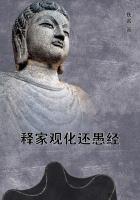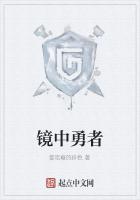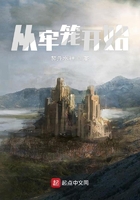Within it was a bit over-clean, a bit bare, but without it was one of the great memories of the race, the record of a faith which wrought miracles of beauty, at least, if not piety.
The train gave the Marches another, and last, view of it as they slowly drew out of the city, and began to run through a level country walled with far-off hills; past fields of buckwheat showing their stems like coral under their black tops; past peasant houses changing their wonted shape to taller and narrower forms; past sluggish streams from which the mist rose and hung over the meadows, under a red sunset, glassy clear till the manifold factory chimneys of Dusseldorf stained it with their dun smoke.
This industrial greeting seemed odd from the town where Heinrich Heine was born; but when they had eaten their supper in the capital little hotel they found there, and went out for a stroll, they found nothing to remind them of the factories, and much to make them think of the poet.
The moon, beautiful and perfect as a stage moon, came up over the shoulder of a church as they passed down a long street which they had all to themselves. Everybody seemed to have gone to bed, but at a certain corner a girl opened a window above them, and looked out at the moon.
When they returned to their hotel they found a highwalled garden facing it, full of black depths of foliage. In the night March woke and saw the moon standing over the garden, and silvering its leafy tops. This was really as it should be in the town where the idolized poet of his youth was born; the poet whom of all others he had adored, and who had once seemed like a living friend; who had been witness of his first love, and had helped him to speak it. His wife used to laugh at him for his Heine-worship in those days; but she had since come to share it, and she, even more than he, had insisted upon this pilgrimage. He thought long thoughts of the past, as he looked into the garden across the way, with an ache for his perished self and the dead companionship of his youth, all ghosts together in the silvered shadow. The trees shuddered in the night breeze, and its chill penetrated to him where he stood.
His wife called to him from her room, "What are you doing?"
"Oh, sentimentalizing," he answered boldly.
"Well, you will be sick," she said, and he crept back into bed again.
They had sat up late, talking in a glad excitement. But he woke early, as an elderly man is apt to do after broken slumbers, and left his wife still sleeping. He was not so eager for the poetic interests of the town as he had been the night before; he even deferred his curiosity for Heine's birth-house to the instructive conference which he had with his waiter at breakfast. After all, was not it more important to know something of the actual life of a ****** common class of men than to indulge a faded fancy for the memory of a genius, which no amount of associations could feed again to its former bloom? The waiter said he was a Nuremberger, and had learned English in London where he had served a year for nothing. Afterwards, when he could speak three languages he got a pound a week, which seemed low for so many, though not so low as the one mark a day which he now received in Dusseldorf; in Berlin he paid the hotel two marks a day. March confided to him his secret trouble as to tips, and they tried vainly to enlighten each other as to what a just tip was.
He went to his banker's, and when he came back he found his wife with her breakfast eaten, and so eager for the exploration of Heine's birthplace that she heard with indifference of his failure to get any letters. It was too soon to expect them, she said, and then she showed him her plan, which she had been working out ever since she woke. It contained every place which Heine had mentioned, and she was determined not one should escape them. She examined him sharply upon his condition, accusing him of having taken cold when he got up in the night, and acquitting him with difficulty. She herself was perfectly well, but a little fagged, and they must have a carriage.
They set out in a lordly two-spanner, which took up half the little Bolkerstrasse where Heine was born, when they stopped across the way from his birthhouse, so that she might first take it all in from the outside before they entered it. It is a ****** street, and not the cleanest of the streets in a town where most of them are rather dirty. Below the houses are shops, and the first story of Heine's house is a butcher shop, with sides of pork and mutton hanging in the windows; above, where the Heine family must once have lived, a gold-beater and a frame-maker displayed their signs.














